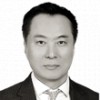By Peter S. Kim
Since the outbreak of the Russian invasion of Ukraine, geopolitical risks have risen markedly around the world. The latest conflict between Israel and Palestine is another confirmation of the conflicts spreading to far corners of the world. With deglobalization being taken apart by the rising populism and nationalistic wave, countries are seeing the reversal of the “peace dividend” many took for granted. When the U.S. banned Huawei’s 5G equipment in 2019, it was the first early example of businesses impacted by rising geopolitical risk. A combination of authoritarian regimes and an increasingly unipolar world leads to rising defense spending by many countries.
For defense contracts, nations with clearly defined political allegiance will naturally veer toward their allies. But it can be a double-edged sword for countries with politically neutral positions. Last month, South Korean President Yoon called for the defense industry to be a growing export sector, calling for Korea to become one of the top four weapons producers in the world. The declaration is prompted by Korea’s recent mammoth contract win from Poland, and hopes are that it is the first of many to follow. Korean companies hope to capture rising demand from many countries looking for alternatives to existing contractors. In 2022, South Korea’s arms exports are estimated to hit a record high of over 20 trillion won ($15 billion), notably with a major contract with Poland to supply K2 tanks, K-9 self-propelled howitzers, FA-50 light attack aircraft and Chunmoo multiple rocket launchers. The contract is worth almost 17 trillion won, the biggest win ever for Korea. As Poland is a NATO member and in the vicinity of the escalating geopolitical tensions, it is thought that it is just the beginning of sustained demand from the region.
Historically, South Korea depended on imports for its defense needs, in particular its principal ally, the U.S. But, with the U.S. defense contractors experiencing supply bottlenecks from supply chain issues and rising wages, Korean companies can gain market share with pricing advantages. Korean defense contractors also have the bonus of Korean weapons systems being designed for joint operations with the U.S., making them for smooth integration with those used by NATO allies.
Despite its alliance with the U.S., South Korean companies are seeking to balance between the U.S. and China to optimize their export potential. Korean companies are famous for their opportunistic and agile export strategies, and they have thus far shown their desire to remain neutral on political matters for their market positioning.
Besides the political alignment, the Korean defense industry follows the classic Korean export strategy of competitive pricing, typically at a 30 percent discount against the global leader. Korean exporters adopted the strategy successfully for many decades, where its advantages in labor cost coupled with government support allow for the pricing discount to international competition, especially the Japanese exporters. The currency advantage further helped "Korea Inc." apply cost advantage aggressively against Japanese products due to the yen strengthening during its “lost decades.” The ensuing volume growth of Korean products then allows for economies of scale, providing the foundation for sustained market share gains. Korea’s pricing strategy is most famously adopted by China, whose massive incursion into global trade is partially responsible for the current tensions with the U.S.
The second edge for Korean exporters established is the quick turnaround in orders where its industriousness and urgency to satisfy customer demand has helped garner a loyal following worldwide. The turnaround time is especially critical for industries with long waiting periods, such as shipbuilding and construction, explaining Korean companies’ historical success. We also saw such traits during the pandemic when Korean pharmaceutical companies were one of the first companies to provide COVID-19 testing kits.
Finally, some notable companies like Samsung Electronics and Hyundai Motor Company used the cash flow from the growth phase to narrow the quality gap with the industry leader, eventually establishing a spot as the best in its sector. For the two brands, transitioning from the volume growth stage to moving up the quality curve has been the critical step many other Korean brands struggle with. Unsurprisingly, the Korean government also emphasized the importance of aerospace and artificial intelligence technology, which could be crucial in future battlefields.
The addressable market for the defense industry is vast, with global exports dominated by the U.S. and European producers, with an estimated 90 percent of global supply. Therefore, the opportunity is there for "Korea Inc." to utilize its trademark strengths in competitive pricing, quick turnaround on orders and with the government’s backing. And if Korean companies continue to catch up on product quality relative to global peers, the secret formula for the next emerging Korean export industry could be in the making.
Peter S. Kim is the managing director of KB Financial Group.





















 Toi Staff
Toi Staff Gideon Levy
Gideon Levy Belen Fernandez
Belen Fernandez Andrew Mitrovica
Andrew Mitrovica Mort Laitner
Mort Laitner Rami G Khouri
Rami G Khouri Ali Fathollah-Nejad
Ali Fathollah-Nejad Nikkei Editorial
Nikkei Editorial
